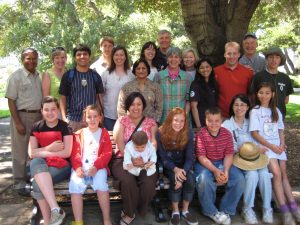by Virginia Colin
Gathering the extended family together for holidays is a treasured tradition for many. Amidst the love and fun, however, awkward quirks and tense conflicts sometimes come out. Given how polarized we are in the U.S. now, this year may be more difficult than most. Here are some suggestions for keeping things from getting too heated and for steering conversations back to a more civil tone, if discussions do become hostile.
The 2016 election brought some huge political differences to the fore. Many extended families include people who really like Donald Trump and people who really like Hilary Clinton. Some folks were thrilled with the election outcome, some were relieved, some were worried, some were depressed, and some were horrified. The topics of health care, civil rights, climate change, religion, the economy, sexism, immigration, etc. may come up during your holiday gatherings. Each may be a hot-button topic for one or more family members. How will you and your family handle all this?
 Family members who kept a tense but polite silence about someone’s racism in past years may no longer be willing to remain silent. Family members who wish that recent immigrants would go away and never come back may not want to converse with their relatives who believe that immigration fuels our nation’s economy.
Family members who kept a tense but polite silence about someone’s racism in past years may no longer be willing to remain silent. Family members who wish that recent immigrants would go away and never come back may not want to converse with their relatives who believe that immigration fuels our nation’s economy.
In some cases, relations are so toxic that just staying away from certain members of the family is best. But, in most cases, there is a lot of love and loyalty mixed up with the political, religious, and/or personal differences. In that case, what can you do?
Listen
My first suggestion is almost always this: LISTEN. If you can say it truthfully, say that you have a different view, and that you would like to learn more about why your relative has the opinions and values that s/he does. Ask whether your relative would be interested in hearing why you hold your particular opinions and values. The goal should not be to convert or persuade each other, but to understand each other better. This really helps. To check whether you are listening well, voice your understanding of what your relative is saying. Ask whether you got it right. Ask him or her to do the same when listening to your perspective.
Ask How
Instead of asking yourself “Can we handle the disagreements in our family?”, ask yourself “How can we handle the disagreements in our family?” What a difference the word “how” makes! It shifts you from looking at the past and thinking about things that were impossible to looking toward the future and doing some creative thinking. Invite your relatives also to think about and talk about how you all can handle disagreements in your family constructively and peacefully.
Avoid Getting Heated
 Pay attention to your and others’ physiological arousal levels. Ideally, these levels will be remain moderate. When physiological arousal is too high, as when you are very angry or fearful, you cannot focus on the content of the conversation; you cannot process incoming information. In short, you can’t learn anything from each other. So, if someone starts to get too upset, suggest taking a walk. Walking actually helps you calm yourself and think creatively. (You also get to burn off some of those holiday calories!) It is probably a good idea for the two family members who are most upset to walk in different directions!
Pay attention to your and others’ physiological arousal levels. Ideally, these levels will be remain moderate. When physiological arousal is too high, as when you are very angry or fearful, you cannot focus on the content of the conversation; you cannot process incoming information. In short, you can’t learn anything from each other. So, if someone starts to get too upset, suggest taking a walk. Walking actually helps you calm yourself and think creatively. (You also get to burn off some of those holiday calories!) It is probably a good idea for the two family members who are most upset to walk in different directions!
Make No Accusations
You and your relatives may also do better if you agree not to blame or accuse each other for whatever is wrong with your family, or our country. Blame and accusations trigger either defensiveness or fight/flight responses. When people get defensive, warm communication ceases. If someone needs to fight back or fly away, your family loses some of its connectedness.
Exclude Some Topics
If you are convinced that some relatives cannot discuss differences in a civil tone, consider whether everyone might agree that certain topics will not be mentioned at these family gatherings. Everyone could agree to focus on the love and loyalty in the family, and not talk about divisive political issues. It may not help to heal our divided country, but it can help everyone enjoy their holiday gathering.
What if We Need Help?
Professional family mediators facilitate constructive communication, when relatives are having difficulty discussing something important. You can learn more by visiting this page.
Most of us have a lot to be thankful for. Without pretending that the political problems don’t matter, we can choose to focus on gratitude.
___________
Virginia L. Colin, Ph.D is the Director of Colin Family Mediation Group LLC in northern Virginia. She has written two books: Human Attachment (1996) and, with Rebecca Martin, The Guide to Low-Cost Divorce in Virginia (2014). Formerly a research psychologist and a an Internet talk radio show host, she now specializes in helping couples and ex-couples develop good co-parenting plans and financial agreements.
This article was originally published in Healthy Living Made Simple, a Sam’s Club magazine.
